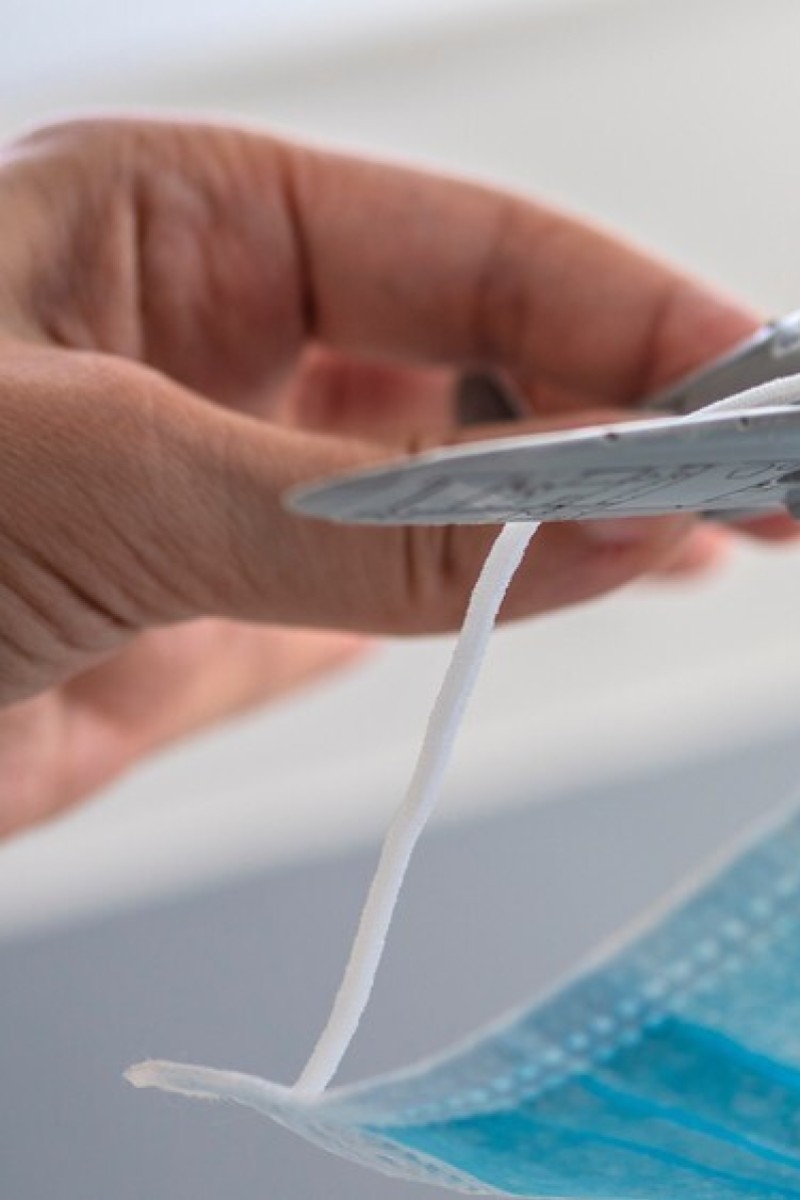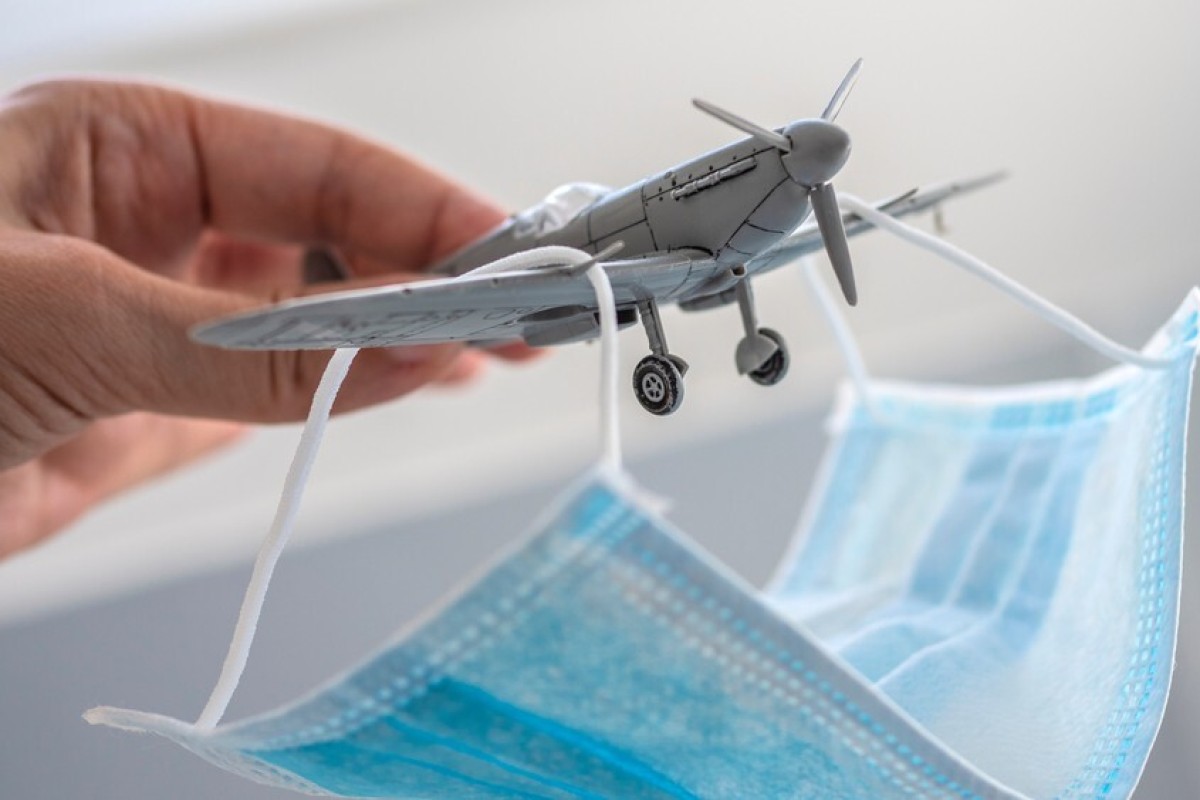
Listen and Learn with YouTube: Pre-departure Covid-19 testing could ease quarantine rules for air travel
- The head of global airline association IATA hopes quick Covid-19 tests will encourage governments to lift certain travel restrictions
- Scroll down to check out the script and answers

Questions
Watch the video and answer questions 1-10.
Click here for script and here for answers.
(1)(i) Interviewee’s name and title: __________________
(ii) Purpose of interview: __________________
(2) Which word can be used to replace “blocking point” at the beginning of the video (0:00-0:44)?
A. nuisance
B. catalyst
C. assistance
D. deterrent
(3) When should travellers be given Covid-19 tests once they are made available?
A. at the arrival hall
B. before they board the plane
C. as soon as they book their flights
D. 15 days before their departure date
(4) Listen to the beginning of the video (0:44-2:14). Why are the on-the-spot Covid-19 tests possibly the best solution to resuming air travel?
(i) __________________________
(ii) __________________________
(iii) __________________________
(iv) __________________________
(5) What does the phrase “phased implementation” imply about the tests?
A. They will be carried out in different stages.
B. They will be done at the same time.
C. They are not likely to have any side effects.
D. They might not be accepted by the governments of some countries.
(6) What is preventing most people from travelling according to the middle of the video (3:02-4:19)?__________________________
(7) Listen again to the middle of the video (3:02-4:19). What does the “very strong result” refer to?
A. governments reinforcing travel restrictions
B. fear of being quarantined
C. effectiveness of the Covid-19 tests
D. people’s willingness to travel
(8) Why does Alexandre use the Chinese domestic travel market as an optimistic example for resuming air travel?__________________________
(9) Listen to the end of the video (4:33-5:54) and find words and phrases that mean the following:
(i) able to be managed with success ____________
(ii) the ability to think and behave in a reasonable way and to make good decisions ____________
(iii) a promise that something will happen ____________
(10) Which of the following is an alternative title for this video?
A. A new guide to air travel during coronavirus
B. Covid-19 tests to replace quarantine in bid to kick-start international travel
C. Ramped up virus tests push air travel to the limit
D. Global air travel battered by outbreak
[1] Elaine Ly, South China Morning Post: People want to travel again. What should airlines prioritise in order to make this happen?
[2] Alexandre de Juniac, Director General and CEO of the International Air Transport Association (IATA): Quarantine measures are a blocking point for any air travel. So what we are asking governments is to remove these travel restrictions and particularly quarantine measures, and to implement a systematic testing for all passengers as a kind of counterpart of replacement and protection, you know, against virus transmission from one country to another to guarantee that the pandemic remains under control and that there is no import of the virus.
[3] Elaine Ly: Now you mentioned about testing. So how these on-the-spot Covid-19 tests work?
[4] Alexandre de Juniac: We are asking for a testing before departure and more likely at the departure airport based on, you know, the new antigen tests that are now ready and available, and can be produced massively. When I say massively, it’s millions per day, so it’s … we are very close to the quantities we need, and when I say we, it’s not only aviation, but different sectors.
[5] Alexandre de Juniac: They are fast enough because they last 15 minutes before having the results, so it’s compatible with our operational request and compatible with what passengers can expect. They are reliable, so I think they are a good guarantee seen from health authority and seen from government. They are affordable around seven to eight dollars, or seven to eight Swiss Franc per test, and they can be operated by probably trained personnel, but not necessarily by you know, highly-skilled medical specialists. So when you accumulate all these advantages, we think that testing passengers at departure airport offer a guarantee to governments that we transport people who are not infected and to passengers that they are safe and as you know, safety is our top priority.
[6] Elaine Ly: Sounds like a massive task. So how can different countries and different airlines in the industry work together to put this into effect?
[7] Alexandre de Juniac: What we have to do is to work with government and with the airport to organise logistically. You know, this testing at the airport as we did after 9-11 for security to organise the systematic testing of passengers. It can be done. We are also working with the testing of the pharmaceutical industry which are producing this test and we have to organise that probably we will, it will be a phased implementation, you know, choosing countries, airports, routes to be deployed starting in October.
[8] Elaine Ly: The airline industry is trying to restore travelling for the upcoming holiday season. Now, you’ve carried out a public opinion survey on this. What did you find out from that?
[9] Alexandre de Juniac: We see that clearly quarantine is the major deterrent to any air travel. Nobody something like 88 per cent want to travel if there is a risk of quarantine, so it is clear that we have to convince governments to remove these quarantine measures. Second findings, we see that our people are ready to fly again, and we see that through various survey, but also through the experience for instance, coming from the Chinese market. The Chinese domestic [travel] market is now at a level between 80 to 90 per cent of the 2019 figures, so it means that is, when you lift travel restrictions, the appetite to fly is still there. Thirdly, we found that 87 per cent of passengers, they are ready to be tested. They see no inconvenience, if testing is the guarantee that they can travel without being blocked anywhere, they are ready to be tested. That’s a very strong result.
[10] Elaine Ly: The numbers are growing rapidly at the moment in Europe and Hong Kong is just coming out of the third wave. I want to ask you, how can mandatory testing restore confidence in travelling once again?
[11] Alexandre de Juniac: You know, the confidence in travelling viewed or seen from passengers is there. People are not afraid to travel. They are afraid to travel if there is travel restrictions and particularly, the quarantine they don’t want, no, that’s common sense and they don’t want to plan a weekend or extended weekend, or two-week travel if there is a risk of a two-week quarantine everywhere anyway. And what we have to gain and together, it is the acceptance of governments to reopen borders and so their acceptance to rely on the testing system that bring a safety guarantee that are considered by health authority as protective enough to avoid the re-importation of the virus in a country or in other words, to minimise the risk at a level in which the pandemic is fully under control. You know, that’s the point.
[12] Elaine Ly: Okay, Alexandre de Juniac, CEO of IATA coming from Geneva, thank you so much for your conversation today.
[13] Alexandre de Juniac: Thank you very much.
1.(i) Alexandre de Juniac, Director General and CEO of the International Air Transport Association
(ii) find out how Covid-19 could ease quarantine rules for air travel
2. D
3. B
4.They are affordable./ Results are shown in 15 minutes. / They offer a guarantee to governments that the passengers are not infected. / They offer a guarantee to travellers that air travel is safe.
5. A
6. quarantine and travel restrictions
7. D
8. because domestic air travel in China is at a level between 80 to 90 per cent of the 2019 figures/pre-Covid figures
9.(i) under control
(ii) common sense
(iii) guarantee
10. B
